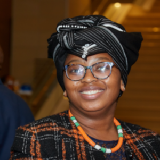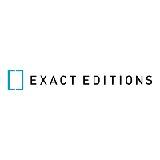Blog
Unless otherwise stated, content is shared under CC-BY-NC Licence
FAIR Digital Objects 2022 Conference – Challenges with terminology
Zoë Hollingworth is Collections Systems Lead at V&A South Kensington and part-time PhD student in History of Art at the University of Edinburgh. She recently attended FDO2022 with support from the DPC Career Development Fund, which is funded by DPC Supporters.
With a grant from the Digital Preservation Coalition, I was fortunate enough to attend the 1st International Conference of FAIR Digital Objects (FDO2022) held in Leiden, Holland, 26th to 28th October 2022. The conference was hosted by the Fair Digital Objects (FDO) Forum, which hopes to ‘achieve a better coherence amongst the increasing number of initiatives working on FDO-based designs and implementations.’
Reimagining the digital preservation workflows of Archives - FIAT/IFTA World Conference 2022
Thandokazi Maceba is a Data Curation Officer at the Libraries of the University of Cape Town (UCT). She recently attended The FIAT/IFTA World Conference 2022 in Cape Town, with support from the DPC Career Development Fund, which is funded by DPC Supporters.
I discovered the FIAT/IFTA World Conference 2022 at a time in my career when I was searching for ways to improve my skills set and broaden my scope in the Library and Information Sciences sector. I like the fact that it was happening in Cape Town, and I could learn international industry best practices, and create local and international networks in the comfort of my city.
I am a Data Curation Officer in the Digital Library Services department of the Libraries at the University of Cape Town. As part of my role, I strive to enhance preservation and access processes and workflows for the preservation and access of the libraries and other collections across campus. This is accomplished by utilising the appropriate software, scripts, or tools for data transformation and manipulation and by logically organising a range of file formats for access and preservation.
DPClinic – Behind the scenes with Barbara Sierman
Michael Popham is Digital Preservation Analyst at the DPC.
For this month’s DPClinic, Barbara Sierman chose to reprise a session she offered at the recent iPres 2022 conference. Barbara is well-known to many in the digital preservation community, having worked formerly as Digital Preservation Manager at the Koninklijke Bibliotheek (National Library of the Netherlands), and since being awarded a DPC Fellowship in 2018 in recognition of her sustained personal contribution to digital preservation.
Barbara is currently writing a book about her time working in digital preservation, in which she plans to pay tribute to the pioneers in the field. Barbara confessed that in the course of her research, she has been surprised at just how long some people have been working on aspects of digital preservation that still engage our thinking today. She was keen to hear others’ thoughts and reflections on these topics, and chose to do this by presenting citations from five seminal pioneers of digital preservation from Australia, Canada, UK, US, and the Netherlands.
File format recommendations - I wouldn’t say they are unacceptable, but I wouldn’t recommend them either
Last week I joined a webinar entitled “A Comparison of Recommended File Formats and the New Dutch Method for File Format Assessment”. It’s great to see the outcomes of this collaborative work, and it’s clear that it has already played an important role in bringing out some key themes in the preservation approaches of various organizations. But I felt that a number of aspects give cause for concern. The collation of file format policies has highlighted some approaches that I believe should be challenged and discussed further. I also suggest that the communication of the work could be enhanced to avoid misleading readers and propagating potentially poor preservation practice. These are of course just my thoughts on this topic, but I’d love to continue the conversation and try to better understand the motivation around these approaches to addressing file formats.
Tapping the (Open) Source – No Time To Wait 2022
Nigel Bryant is Audiovisual Digitisation Officer at the University of Bristol Theatre Collection. He recently attended No Time To Wait 6 with support from a travel grant from the DPC Career Development Fund, which is funded by DPC Supporters.
As part of my role, I am constantly striving to improve processes and workflow for the preservation of AV materials. I am currently implementing an open source workflow employing the Matroska (.mkv) video format, ideally using entirely Free and Open Source Software (FOSS). Matroska is a purpose-built multimedia wrapper that carries a variety of payloads including video, audio, subtitles and metadata. In combination with the FFV1 codec, Matroska files can hold losslessly compressed video which is visually identical to uncompressed video. This combination has been adopted as the AV preservation format of choice for many institutions including the British Film Institute.
Notes After Attending the 2022 FIAF Film Restoration Summer School
Natalia Bianchi is a Digitisation Technician working with time-based media in the Access Team at Imperial War Museum. She attended the FIAF Film Restoration Summer School this year with support from the DPC Career Development Fund, which is funded by DPC Supporters.
Even if film archives and cultural heritage institutions around the world are aware of the comprehensive film preservation policies that should be put in place, many analogue film collections are slowly deteriorating over the years due to a lack of resources and unfavourable climate conditions, among other reasons. In this context, thinking about strategies of mass-digitisation programmes and long-term digital preservation is therefore fundamental for future generations and the protection of the audio-visual heritage.
Good Practice on World Digital Preservation Day: Data for all, for good, forever...
As head of Good Practice and Standards at the DPC I’m always on the look out for examples of digital preservation good practice within the community and I’m keen to find ways to amplify them. World Digital Preservation Day is a great opportunity to see such examples and in this post I share a few World Digital Preservation Day blogs that caught my eye last week, in particular thinking about elements of the theme for this year - “Data for all, for good, forever”.
When Friday Comes
The Earth spins. The Sun rises. It’s Friday 4th November which means World Digital Preservation Day 2022 is now over. The Earth will keep spinning and the Sun will keep rising, so the question is what will we do with all those new connections and insights which have been so generously shared? This post is a bit like the morning after election night: it’s too early for the final count but there’s enough to ‘call’ the result. And I am therefore ready to announce World Digital Preservation Day 2022 a success. Maybe even the best yet.
NDSA Leadership Refreshes Foundational Strategy, Now Includes Transparency and Openness
Nathan Tallman is Chair of the National Digital Stewardship Alliance Coordinating Committee
The NDSA held its 10th annual Digital Preservation conference on October 12-13 in Baltimore, Maryland, you can read some highlights from NDSA Leadership on the NDSA News blog. During the opening ceremony, while sharing my remarks as Chair, I mentioned that NDSA Leadership worked over the summer and fall to refresh our foundational strategy. What better day to talk about our refreshed strategy than World Digital Preservation Day!
Our mission statement now reflects that NDSA fosters and incubates communities of practice who advocate, support, and provide expertise in digital preservation through their work, to benefit practitioners, service providers, and memory organizations, as well as the creators, owners, and users of digital content. These changes reflect a more dynamic and engaged NDSA that supports the community in furthering our collective goals.
#WDPD2022: Exact Editions’ Year In Preservation
Ellie Burnage works for Exact Editions based in the UK
Exact Editions is thrilled to be celebrating World Digital Preservation Day once again this year alongside the community of data creator, curators and consumers.
This theme of this year’s event, organised by the Digital Preservation Coalition, is ‘Data For All, For Good, Forever’. With that in mind, we are focussing on some of Exact Editions’ significant events over the past year that have enabled publishers and libraries to improve access to their digital resources both in terms of readership and longevity.


















































































































































